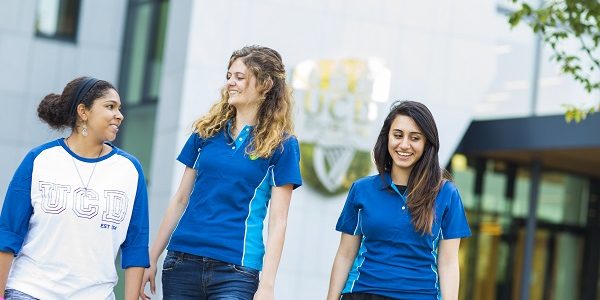Sociology
BSc (Hons) (NFQ Level 8) or BA (Hons) (NFQ Level 8)

Course Video
Curricular information is subject to change.
Open AllIf you are interested in people, you will be interested in sociology. It is relevant for understanding almost every aspect of our lives. We are all part of society, we are connected with each other and we are affected by the people around us. In the same way, we shape the social context for others as well. Sociology provides you with the mindset and the research tools to observe the social world, make connections, understand differences, norms, cultures or inequalities.
Sociology seeks to explain how people relate with each other, how hidden structures play an important role in everyday life and how society shapes the way individuals behave. It is about why individuals organise themselves into groups such as families, communities, social classes, social networks, religions, genders, neighbourhoods or nations. But it is also about how these groups come about, what they mean and how they change over time. An essential part of your studies will be the acquisition of a sociological toolkit that includes both theoretical approaches and research methods to study society.
First Year
The first year includes a general Introduction to Sociology, the Foundations of Sociological Thinking, a view on Contemporary Ireland and the basics of Research Methods and Design. All first year social sciences students also study the core module, Societal Challenges in the Twenty First Century, plus another subject, plus an Elective module.
Second Year
The second year involves training in Quantitative and Qualitative Research Methods and modules in areas such as Gender, Sociological Theory, Sociology of Peace & Conflict, Sociology of the
Environment and more.
Third Year
The third year provides the opportunity for an Internship or Study Abroad. There are also range of substantive modules in areas such as Migration, Race and Ethnicity, Historical Sociology, Lying & Deception and more.
Fourth Year
During the fourth year, students participate in a Research Project. There are also further specialised modules, such as War & Violence, Global Inequalities or Punishment & Social Control, plus Elective modules.
Students attend lectures and participate in seminar discussions. They also undertake independent studies, including reading and writing about sociological issues. Assessment is a combination of continuous assessment and end-of-trimester written exams, but also includes more innovative types such as producing a podcast on sociological issues.
For detailed information on subject content click here.
You may be interested in the following blog posts: Why I chose Social Sciences majoring in Sociology and Social justice.
| Study Sociology (BSc Social Sciences) |
|---|
as a Joint Major with one of the subjects below:
OR - with one Minor subject:
OR - within a pathway:
| Study Sociology (BA Joint Honours) |
|---|
as a Joint Major with one of the following:
Sociology students at UCD can avail of international exchange opportunities in universities in Europe and around the world. Currently, Erasmus opportunities exist in:
- Belgium
- England
- France
- Italy
- Netherlands
- Norway
- Spain
- USA
- Australia
- China
- South Korea.
Students studying Sociology with German or Italian will study abroad for their third year.
Sociology gives an excellent foundation for a diverse set of careers in areas such as; Social research & Policy Analysis, Journalism, Media, Community Development, Youth Work, Civil Service, Social Data Science or Business.
It also leads to a wide range of graduate study opportunities in the social sciences, law and business. The School of Sociology offers a general MSc or MA in Sociology, MSc in Social Data Analytics, MSc in Comparative Social Change, MSc in Demographic and Population Analytics and an MA in Race, Migration and Decolonial Studies.
“Studying Sociology is highly practical. Its emphasis on exploring diverse social groups,research methodology and policy analysis allowed me to navigate the increasingly complex global landscape in which we live. My favourite aspect of my studies was its emphasis on developing critical thinking skills. The rigorous examination of social structures, norms and institutions through the various modules has improved my capacity to make informed decisions and deepen my opinions on various social challenges. I would encourage any student with an interest in positive social reform to consider studying Sociology at UCD.”
George Kelly, Student
UCD School of Sociology
Newman
Belfield,
Dublin 4
Contact: www.ucd.ie/sociology/contact/


